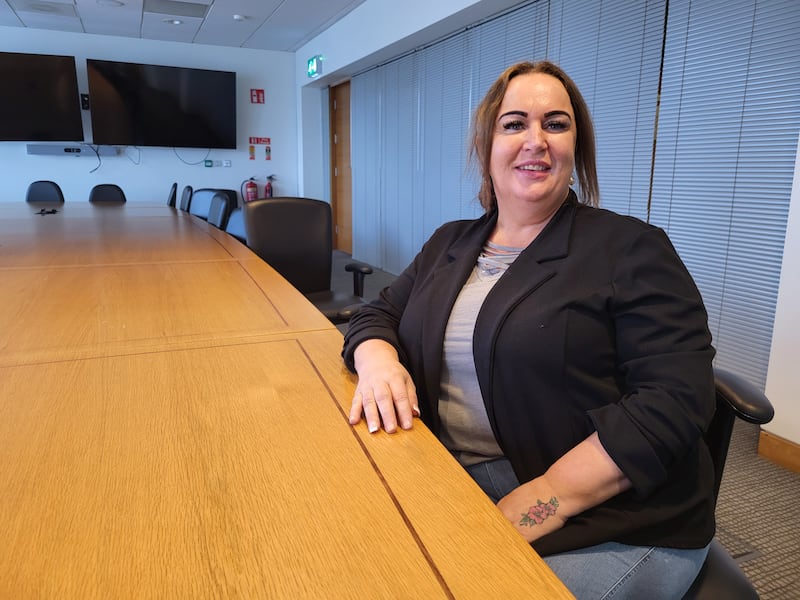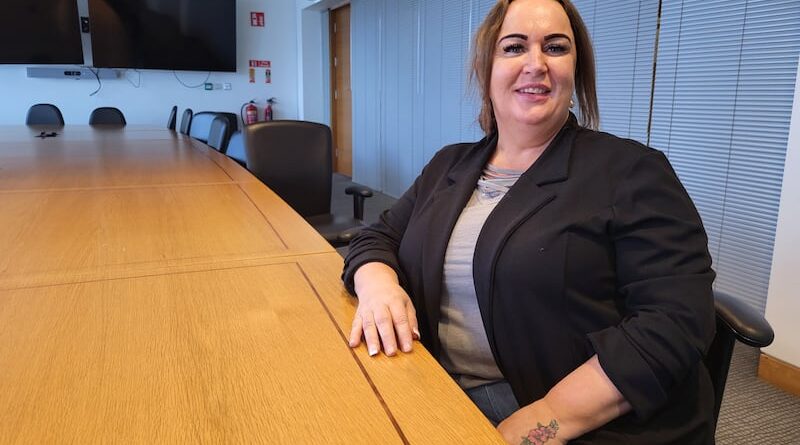‘Brutal truth’: For Travelers, mental illness remains a stigma that can lead to more and more problems.
Michael Francis Ward was 11 years old when he first entered the prison system. As a school child, he said he often faced discrimination because of being a Traveller. He was told he was not allowed to play GAA for the local club; while he was in school, he was bullied.
He said this made him feel very confused: about people, about education, about life. Without going out, he started hanging around with the “wrong crowd”.
“Then I was locked up and put in a cell, even though I was a young man, it was not fun. I was very active. “I wanted to keep going and I was locked in a room playing in my mind,” he said.
“My mind started working differently. Paranoia set in, it was paranoia from school, from my upbringing and being locked in a room. You almost start talking to yourself. And at that time when you spoke to yourself you were sick, you were crazy.”
[ ‘I tried to get help for my son after a manic episode. Instead he got a criminal record’Opens in new window ]
The 42-year-old father of six was diagnosed with paranoid schizophrenia while in prison. However, the disease “moved me even more”, he said.
“That was scary. I have two family members who have had mental health issues and who have died in mental health services. Seeing what they went through and being put in the same box, it was bad,” he said.
“They diagnosed me with a mental health problem but I had no one to help me. In prison, you can sign up to see a counselor, but your sentence is over when you see a counselor. You I tried to talk to the prison officer but they don’t know what they are talking about, they say go see a counsellor.”
Members of the Mobile Community are over-represented in prisons. Speaking before the United Nations Human Rights Committee in 2022, Irish representatives said that Travelers make up 0.7 per cent of the country’s population but make up 10 per cent of all prisoners and 15 per cent of female prisoners.
The situation has improved since then, with a spokesman for the Irish Prison Service saying that by the end of May 2024, 8 per cent of the prison population as a whole are Visitors.
A 2022 report from the University of Limerick found that Travelers do not trust the Irish criminal justice system to treat them fairly, and that their distrust is based on personal and shared experiences of unsatisfactory treatment and it is sometimes unfair in the hands of criminal justice professionals, such as victims. and the suspects.
Those who work with Visitors say mental health is still a difficult issue, which means that for many people with mental health problems, the illnesses are incurable. This can sometimes lead to crimes that result in them receiving judicial sentences.
Caroline O’Reilly, addiction counselor at Exchange House Ireland National Travelers Service, said on the ground, there are high rates of suicide within the Traveling community.
“Over the years, we’ve seen mental health issues, depression and, I think, poverty and marginalization make it difficult for people to access services,” he said. said so.
O’Reilly said that some conditions can escalate, leading to “multiple psychotic and drug-induced psychosis” that, in some cases, can lead to repeated court appearances, suspensions or imprisonment.
Michael Wolniak, a social worker with one organization, said of the mental illnesses among the Traveler community in the prison system, they are very diverse and range from depression and anxiety to serious illnesses and durable.
“I talked to someone who was suicidal and they were really depressed outside of prison before and because they had been incarcerated and had been waiting for years, months, for support. This issue is a big issue because they lack workers,” he said.
A spokesman for the Irish Prison Service said the multidisciplinary team works directly with the mental health needs of those in custody, including Visitors.
“The Irish Prison Service’s primary health care team and mental health service as well as accessible mental health services, provided by the HSE mental health service, are include providing weekly mental health workshops led by psychiatrists, supported by non-consultant hospital doctors, community psychiatric nurses and social workers,” he said so.
Because of the stigma and racial discrimination, double testing is common, especially among immigrant women, representatives said.
In Ireland, Irish Traveler women are 22 times more likely to be imprisoned than non-Traveller women, according to a research paper called Minority Women Incarcerated: The Vulnerabilities of Traveler Women in the Irish Criminal Justice System. It found that their risk of incarceration is greater than that of migrant men who are overrepresented among male prisoners.

For Ann Marie Sweeney, her criminal behavior, he said, was directly related to her addiction and depression.
“My first overdose was when I was nine or 10. My first two overdoses I ended up and the hospital. I think it was more of a cry for help than anything else. I always knew I was trapped inside myself. I was very confused. I didn’t trust the outside at all. The community abandoned us from the first day,” he said.
He became addicted to drugs and alcohol soon after his marriage. Here especially when his dealings started with the criminal justice system: “It started with stealing, you had to do it sometimes to survive. Sometimes, it kept me and my children alive. That’s what most of my charges were.”
“I went to prison, I got out of it. I went to jail, I got out of it,” he added.
According to Sweeney, the impact of mental illness among the Walking community is “brutal”.
“We have many people who kill themselves and many men and women who go to prisons; and we have many young people who get into crime and addiction because of their mental health and lack of understanding,” he added.
Ber Grogan, director of policy and research at Mental Health Reform, said the Mobile Community is a group of people who “fall through the cracks”.
He said that there is still a stigma around mental illness here. “The stigma is huge, and there’s a big issue with self-esteem. If you have serious mental health problems, it’s an intellectual disability. ”
Another man, Frank*, said he was unable to tell anyone about his mental health problems as a teenager because it would affect his chances of marriage.
“I was about 16/17 years old when I found myself really depressed. As a Visitor, no one would give me their daughter in marriage if I was depressed or as they called ‘loony barrel’,” he said.
So my father and everyone managed to hide that I was depressed because you refused to marry. And you will destroy your brothers marriage.”
Frank, which is not his real name, drank heavily to cope with depression, she said. Later in life, he was sentenced to 14 years in prison for a violent crime related to a family dispute. Here, the problems of his mental health began to show.
I would be screaming into the pillow because I didn’t want anyone to hear me. I would be mentally tortured. And then I went out with a laugh and a smile on my face. I was always thinking about killing myself, but I didn’t show it.”
The Samaritans can be contacted by toll-free: 116 123 or email: jo@samaritans.ie
Sponsored by the Rosalynn Carter Fellowship for Mental Health Journalism in the Republic of Ireland in partnership with Headline, a program of Shine.


#Brutal #truth #Travelers #mental #illness #remains #stigma #lead #problems
